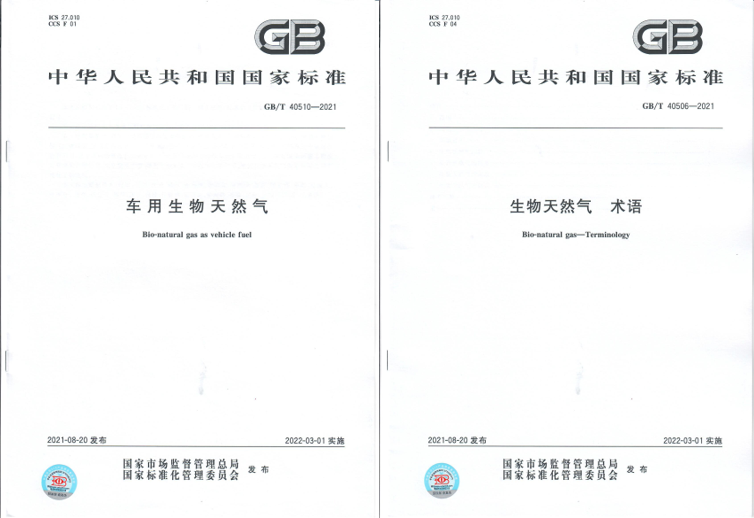Recently, two national standards, “Bio-natural gas as Vehicle fuel” and “Bio-natural gas-Terminology,” were officially released by the State Administration for Market Supervision (SAMR) (Standardization Administration of China (SAC)). Professor Wang Wei (School of Environment, Tsinghua University) led the editorial team, including the China National Institute of Standardization (CNIS) and the Research Institute of Petroleum Exploration and Development (RIPED) under the China National Petroleum Corporation (CNPC). These standards take a key step in boosting the domestic bio-natural gas industry through standards-infrastructure development.
“Bio-natural gas as vehicle fuel” (GB/T 40510-2021) specifies the technical requirements, test methods, and inspection of bio-natural gas in motor vehicles with a gauge pressure below 25 MPa. The standard aims to provide a technical reference for using bio-natural gas as an alternative vehicle fuel, supporting a market-led standard system to bolster the competitiveness of the bio-natural gas industry.
“Bio-natural gas-Terminology” (GB/T 40506-2021) defines the terminology in the field, incorporating expert opinions from leading enterprises and institutions in the industry. The standard includes more than 40 terms based on industrial practices, from fundamental principles to engineering applications in feedstock, preparation, production, storage, and transportation. The document aims to standardize the terminology and industrial practices to enable faster commercialization of emerging technologies in the industry.
As a green, low-carbon, clean, and renewable alternative fuel, bio-natural gas plays an essential role in solving the energy shortage problems in China and realizing the transition to a low-carbon energy economy. The release of the standards constitutes a necessary first step in accelerating the development of the biomass-based natural gas industry amid China’s transition to a low-carbon economy, playing a pivotal role in approaching the goal of carbon peaking and carbon neutrality.

Cover of the two standards





